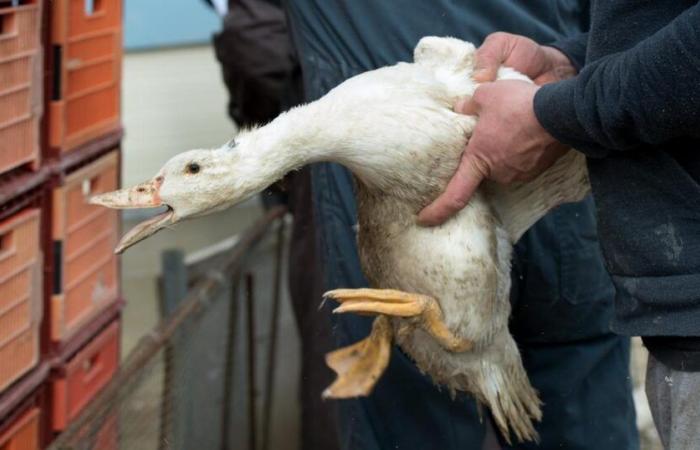The Federal Council rejects the popular initiative against foie gras, without presenting a counter-proposal. However, he proposes that products resulting from the force-feeding of animals be subject to mandatory declaration in order to improve transparency.
The “Yes to the ban on the importation of foie gras” initiative, known as the foie gras initiative, wants to ban the importation of foie gras and products made from this offal. A ban which would also apply to individuals who would no longer be able to import these products for their personal use.
From the point of view of animal protection, the Federal Council understands the objectives of the text. The suppression of demand in Switzerland would reduce the production of foie gras abroad and therefore lead to a reduction in the number of ducks and geese used for their production.
Little effect on animal welfare
However, the government clarified on Wednesday that consumption in Switzerland only represents 1% of demand on the world market. The direct effect on animal welfare would be rather weak.
Speaking to the media, Federal Councilor Elisabeth Baume-Schneider recalled that Swiss legislation on animal protection was one of the strictest in the world. The force-feeding of domestic poultry has been prohibited in Switzerland for more than 40 years.
Concerning importation, the minister highlighted in the RTS Forum program the cultural character of foie gras. In France, it “is part of a culinary tradition. The very tradition of the meal is also part of UNESCO’s intangible heritage”, she pointed out.
>> The interview with Elisabeth Baume-Schneider in Forum:
Incompatibility with the law
She also clarified to the media that an import ban is not compatible with international treaties and agreements concluded by Switzerland. This would constitute a serious attack on free trade and risk triggering commercial disputes at international level, according to the minister.
Such a radical measure can only be ordered if all other less strict measures have failed to achieve the desired objective, recalls the government.
“Retaliatory measures against exported Swiss products cannot be excluded,” said Elisabeth Baume-Schneider.
More transparency
The Federal Council, however, proposes to introduce a mandatory reporting regime in order to increase transparency. Consumers will thus be able to identify the food production method. They must be aware that they are buying a product obtained by methods prohibited in Switzerland, underlines the government.
“The Federal Council has chosen the pragmatic path by taking into account the request of the initiators, while respecting Switzerland’s international obligations,” he welcomes.
For Elisabeth Baume-Schneider, this obligation respects proportionality. “The Federal Council’s response is appropriate because it gives the possibility of making a choice in what we have on our plate, with full knowledge of the facts,” she added at the RTS microphone.
An ordinance is expected to come into force in mid-2025. A consultation has already been carried out.
ats/iar






